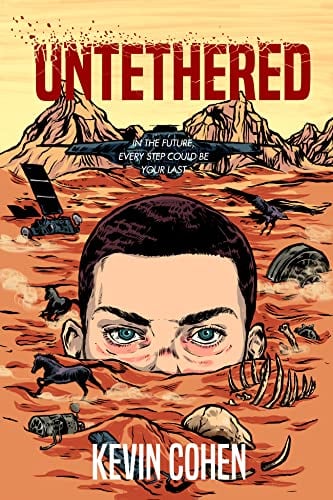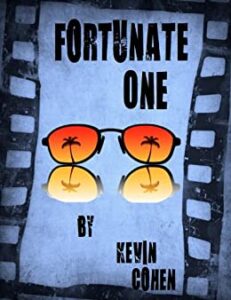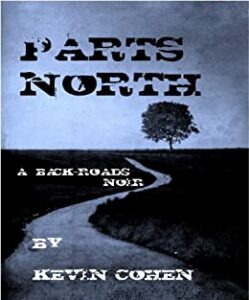
Untethered received a 4+ star review, making it an IndieReader Approved title.
Following find an interview with author Dima Novak.
What is the name of the book and when was it published?
Untethered, published January 12th, 2022.
What’s the book’s first line?
“Dallas Ooguri had a weak spot … he was a skeptical yet reliable sucker for improbable things.”
What’s the book about? Give us the “pitch”.
Wool meets The Road Warrior, set in a future desert wasteland where gravity is like the wind but very, very cruel.
What inspired you to write the book? A particular person? An event?
I trace this book back to an adventure I had when I was 15. I had never been on a sail boat before then, yet found myself relegated by my parents to a summer camp trip at Camp Chewonki for seven weeks in a 12 foot boat sailing along the Maine coast for hundreds of miles. We prepared our own food and camped on islands overnight. We battled the elements along the way … I remember the panic of trying to find a leeward shore when a squall happened upon us and on other days when there was no wind we took down the sails and paddled all day on the flat sea to reach the next island. Other days the fog was so thick we were reading strictly by compass and maps and could not see three feet in front of us.
This was misery on an epic scale, at least from a 15 year old perspective that heretofore was about as environmentally challenged as a pampered housecat. We dreamed of the fast food we would eat as soon as we returned to civilization. The stress was real, however, and created divisions among our group of 12 campers, 3 to a boat. Not Lord of the Flies, but still. Most of the time our biggest challenge was drying off from our daily requirement to bathe in the icy Maine water with towels that were still wet from the day before.
Keep in mind that this was back when there were no cell phones, and barely any television … okay, we had three channels back on dry land. This was clearly why Lawrence Welk and Hee Haw both had coveted spots in primetime.
Luckily the trip leaders had brought plenty of books for the journey, and I devoured all I could read … titles such as Force 10 From Navarone, Ice Station Zebra, and of course, Dune.
I think the dual experience of both living an adventure and reading about those in faraway places … faraway worlds greatly influenced my writing, and especially this book.
After a couple trips to Idaho and Wyoming over the past 5 years, I knew I wanted to leverage that beautiful setting for a wild action adventure / sci fi novel.
What’s the main reason someone should really read this book?
If you like escapist action adventure, science fiction, and Westerns, this is the book for you, because you get all three in one go. There’s also a bit of dark humor to help balance out the mayhem along the way.
I set out to write a book that I would love to read myself. So if you like Tarantino, Firefly/Serenity, Crichton, Leonard, Maclean, Stross, Scalzi this may appeal to you.
What’s the most distinctive thing about the main character? Who-real or fictional-would you say the character reminds you of?
I’ve got a couple of minor-major characters in what is otherwise an ensemble piece. Just like an epic disaster adventure, my hope is that there is something distinctive about all the characters. Overall, the question is, how does a group of mostly strangers survive an epic failure that requires them to act as a team in an uncertain terrain hundreds of years in the future. It raises the question as to what if the future you’ve prepared for on far-away planets is turned around … now the challenge is to deal with the shell of the planet you were trying to leave, and bring it back to life.
When did you first decide to become an author?
My father was always writing when I was a kid, from books of poetry to non-fiction and spy novels, and he’s always maintained a large library, allowing me to scan through various books along the way. I gravitated towards Stephen King, John Irving, Peter Benchley moreso than the non-fiction, at least at the time.
I knew in college that I wanted to become a writer, although at that time I thought it would be screenplays. I had the opportunity to join United Artists (the movie studio) in the story department and eventually became the Co-Story Editor. I met a number of screenwriters, but also met one who had just written a novel.
Somehow the idea of writing a novel became less intimidating through proximity to others in my peer group who were doing the same thing.
Is this the first book you’ve written?
I’ve written two other novels. The first, Fortunate One was written when I was 25, inspired by some of my experiences at United Artists. The style is very 1980’s … first person, alienated. Very much a Hollywood Novel, wrapped in noir. In addition to McInerney and Ellis I was reading a lot of Fitzgerald and West around that time, so the emphasis on imagery and poetry was inspired by artists who saw an earlier version of Hollywood than I did.
The second, Parts North, was what I called a back-roads noir, set in rural Maine, which is my home state. It’s a father/son story that sets up an uncomfortable dynamic with a well-meaning son trying to establish a relationship with an absent ex-con father in a difficult economic environment. With the walls closing in they both turn to a life of crime that does not turn out the way they planned. Stylistically, I was inspired by Larry McMurtry, especially The Last Picture Show.
Not sure who my latest book is inspired by. I think some measure of Elmore Leonard and Scalzi / Old Man’s War freed me up to tap into my dark humor and sarcasm. Road movies are part of my DNA at this point, so I’m sure that The Good, The Bad, and The Ugly was an influence as well. I also loved the slow build-up in DieHard before all hell broke loose, which I’m sure seeped into Untethered as well.
What do you do for work when you’re not writing?
I spent many years in the entertainment industry, on both the technology/strategy and business development sides of the equation. In addition to United Artists I worked for Turner Broadcasting, both domestically and internationally. I have had my own consulting company for the past several years and help clients on strategy and market entry solutions.
How much time do you generally spend on your writing?
My first two books I wrote free-hand on legal pads, and edited while transcribing to computer. I set aside about 3-4 months for each book to write long-hand. My goal was to write 5 pages per day, without revisiting previous pages.
This latest book I wrote on the computer, but spent a huge amount of time out-lining, and re-outlining before I got to the computer. Despite the outlining process, this book took three years for me to write, with two separate page-one re-writes.
I think even when I’m not writing on my computer or long-hand, I’m writing in my head, imagining scenarios. Eventually something takes hold of me and won’t let me go, and I need to put it on paper, for better or for worse!
What’s the best and the hardest part of being an indie?
The best part is having the freedom to let your imagination run completely wild, although when all is said and done if no one runs with you it can get lonely. I would love to check in with the marketing department about my book, until I realize that I am the marketing department.
What’s a great piece of advice that you can share with fellow indie authors?
There is a niche audience for you out there, no matter what story you want to tell. Think about how Netflix categories have evolved … “smart action-crime thriller with elvish tendencies,” etc. There is no one to tell you that you can’t do X, which is incredibly liberating.
Would you go traditional if a publisher came calling? If so, why?
I don’t know. All three of my novels have been rejected by publishers, and in each case it’s just confirmed my desire to stay indie. Having worked at a film studio, I know the compulsion to reject submissions. We would get a hundred scripts a week to evaluate, and so the default mode is to reject almost everything. It seems as though most publishers are looking to put their resources of marketing and distribution behind major author brands, yet there seems to be a Catch-22 for authors who would like to become such a brand.
I think in my case there’s an additional challenge because I’ve written different genre novels … building upon a niche audience that crosses other niches is probably not what traditional publishers are looking for. For authors who focus on one particular genre and hit it hard, with series and off-shoots, it may work for those writers to have a publisher who can remind readers of the latest installment.
In Untethered, the world building I focused on allows me to go back and do off-shoots and sequels in the future. I think there’s a lot more mayhem I can stir up for this group of characters!
Is there something in particular that motivates you (fame? fortune?)
For me, I observe people and situations in my daily life at a zero to low-grade fever level. When certain ideas, characters and story lines begin to get to a full-blown fever I find that I am compelled to start organizing these notions into a form I can turn into a novel. Some images or scenes begin to haunt me unless I put them down on paper. My earliest nightmare as a kid was when The Rover pursued characters in the British TV show The Prisoner, so I try to avoid carrying around scenes for too long in my head. I would love to have greater awareness of my writing, but I’m also pretty shy and am not sure what I would do with even a small amount of fame.
Which writer, living or dead, do you most admire?
For living, I love that my father, William S. Cohen, has written so many books while still maintaining a focus on being a public servant. For dead, I think it’s hard to top Shakespeare in terms of dramatizing the human condition.
Which book do you wish you could have written?
That’s a toss-up … either The Last Picture Show or True Grit would be on my list. The first for mood, setting and characters, and the latter for entertaining epic adventure.


